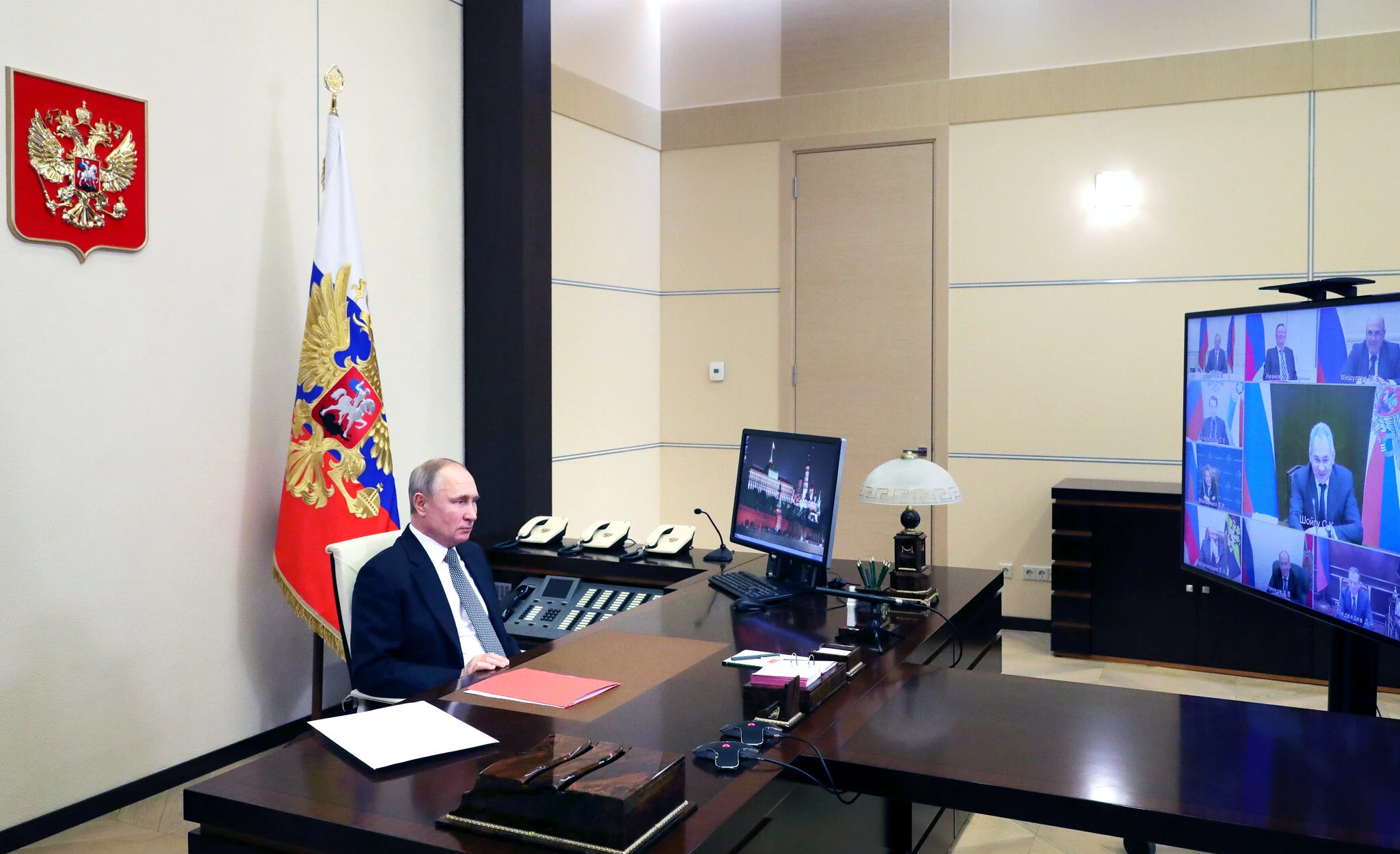
Washington withdrew from the treaty, which lets countries make reconnaissance flights over each other’s territory, last year. Moscow’s move could signal difficulties for the Biden administration.
Russia said on Friday that it was pulling out of a decades-old treaty that allowed countries to make military reconnaissance flights over each other’s territory. The move escalates Russia’s growing military competition with the United States and Europe just weeks before the incoming Biden administration will have to negotiate the extension of the central nuclear arms-control treaty between Moscow and Washington.
The decision by President Vladimir V. Putin to leave the accord, the Open Skies Treaty, matches an action taken by President Trump in May. The treaty, which dates to 1992, is of limited use to the United States, which has a network of spy satellites. But it has been important to European allies as a way of keeping track of Russian troop movements along their borders.
When Mr. Trump announced the American withdrawal, which was completed late last year, he predicted Mr. Putin was “going to come back and want to make a deal.” He did not. And Russia’s move signaled that the country did not intend to make it easy for the administration of President-elect Joseph R. Biden Jr. to reverse Mr. Trump’s rejection of a series of arms-control and military monitoring treaties.
The Russian announcement, if followed by an official notification to the other remaining parties in the treaty, starts a six-month clock toward final withdrawal. The notification would also require a meeting of all the signatories — including the European nations who are most concerned about Russian activity after its years of incursions into Ukraine — within 60 days.
Russia’s Foreign Ministry said in a statement that American allies did not appear willing to save the treaty by satisfying Russia’s demands in recent months that with the United States out of the treaty, they no longer pass along any intelligence gathered through it to Washington.
“The Russian side offered concrete proposals to sustain the treaty under new conditions that corresponded to its foundational provisions,” the Foreign Ministry said. “We are disappointed to note that they did not receive support from allies of the United States.”
The announcement may be viewed as an opening move in an intense, initial encounter that is coming between Russia and the Biden administration.
On Feb. 5, the New START nuclear arms-control agreement expires, unless both governments agree to a five-year extension. That accord is the last major remaining limit on nuclear competition between the two countries: It restricts both nations to 1,550 deployed nuclear weapons each.
Both Mr. Putin and Mr. Biden have said that, in principle, they want to invoke a provision of the treaty that allows for an extension of up to five years. Because that provision is contained in the original treaty negotiated by the Obama administration, it would not require a new vote in the U.S. Senate.
But it is unclear if Russia may introduce new demands, or if either side would want to extend the treaty for the full five years. Mr. Biden has also promised that Russia will “pay a price” for its broad hacking of American government agencies and corporations, revealed last month — meaning he will almost certainly be threatening the country with sanctions or conducting some kind of counter-cyber operation at a moment he is also negotiating the treaty extension.
Another complicating factor is that critical members of Mr. Biden’s cabinet may not yet be confirmed by the Senate in time for the negotiation. The task of dealing with Russia, therefore, will most likely fall to Jake Sullivan, the incoming national security adviser, who does not require Senate confirmation.
“I think our diplomats, before making this decision, became convinced that the United States’ return is extremely unlikely,” Fyodor Lukyanov, a foreign-policy analyst who advises the Kremlin, was quoted as saying by the RIA Novosti state news agency. “This treaty did not figure among that which Biden wanted to change.”
The White House and the State Department said nothing about the Russian announcement. Officials were literally packing up their offices, and the State Department was depopulated on Friday, ringed by National Guard vehicles and troops who were locking down the city before the Wednesday inauguration of Mr. Biden.
The Open Skies Treaty, which has nearly three dozen signatories, was negotiated under President George H.W. Bush in 1992, after the collapse of the Soviet Union. The treaty aimed to prevent military tensions from escalating into war by allowing former Cold War adversaries to fly over each other’s territories using planes equipped with sophisticated sensors.
While most modern-day military intelligence is gleaned through satellites, some information can only be gathered by airplane sensors. Perhaps most important, the treaty — which allowed specially designated American military planes to roam deep into Russian airspace, and vice versa — was a symbol of a determination to avoid war.
Long before the American withdrawal last year, American officials complained that Moscow was violating the Open Skies accord by not permitting flights over Kaliningrad, the region where Russia was believed to be deploying nuclear weapons that could reach Europe, as well as forbidding flights over major Russian military exercises. Russia has denied violating the treaty and claimed the United States had breached it.
The Foreign Ministry said on Friday that it was starting the process of withdrawing from the agreement, but had not yet officially notified the other signatories. Russia’s withdrawal had been anticipated in recent months, though Russian news reports as recently as this week said the Kremlin was also considering a softer move: suspending Russia’s participation in the treaty, rather than departing it altogether.
 Eurasia Press & News
Eurasia Press & News



